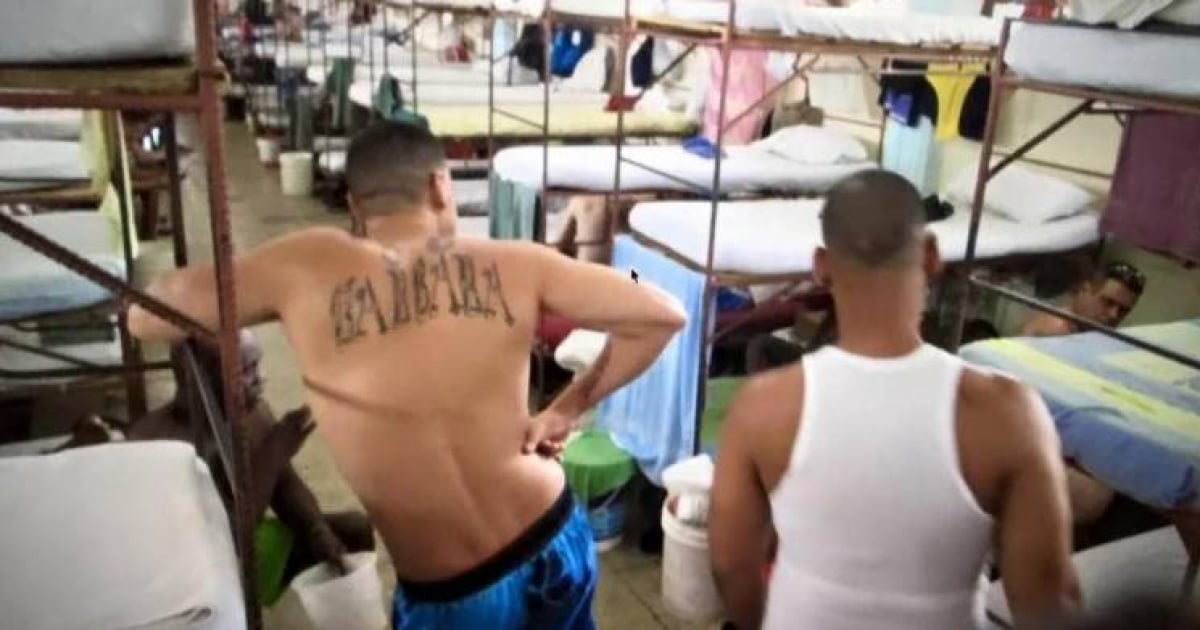On January 30, Yankiel Justiz Despaigne, a 36-year-old inmate, tragically passed away from tuberculosis at Melena del Sur prison in Mayabeque province. This incident was brought to light by the independent platform Cubalex on social media platform X.
According to Cubalex, Justiz Despaigne succumbed to the disease in his cell without receiving timely medical attention. This has sparked renewed criticism regarding the inadequate healthcare provided in Cuban prisons. His father, José Manuel Justiz, shared with the independent media outlet ADN Cuba that his son had been ill for about 20 days following a tuberculosis diagnosis. Despite the severity of his condition, he was neither taken to a hospital nor given the necessary medication while incarcerated.
Efforts to secure a special leave for medical treatment were thwarted by prison authorities, who cited a shortage of medications and insisted that the family provide them. After his death, Justiz Despaigne's body was returned to his family without an autopsy, wrapped in a black plastic bag, and was subsequently cremated.
Systematic Medical Negligence in Cuban Prisons
Cubalex has issued warnings that medical negligence is rampant within Cuba's prison system, leading to numerous preventable deaths. Inmates are subjected to inhumane conditions, marked by overcrowding, unsanitary environments, malnutrition, and a lack of clean water. This neglect exacerbates health deterioration among prisoners and facilitates the spread of diseases.
As of now, Cuban authorities have remained silent on this matter. This case adds to the growing body of evidence highlighting a structural crisis within the Cuban penitentiary system, where inadequate medical care and harsh prison conditions pose a persistent threat to inmate safety.
Ongoing Crisis in Cuban Prisons
A report by the Observatorio Cubano de Derechos Humanos and independent media outlet elTOQUE indicated that in 2024 alone, at least 40 inmates died in Cuban prisons. Over the past five years, there have been 95 deaths either in custody or during police operations, along with 287 instances of non-lethal police violence.
For instance, in November 2024, the death of Inoel Rodríguez Rodríguez, a 27-year-old inmate with schizophrenia, was reported at Ariza prison in Cienfuegos. His family alleged he was beaten to death by prison guards, although authorities claimed it was a suicide.
In December 2024, Manuel de Jesús Guillén Esplugas, a 29-year-old political prisoner, died in Combinado del Este prison in Havana. While authorities attributed his death to suicide, family members and human rights organizations argue he died from a beating received while incarcerated.
In January 2025, Ulises Rodríguez Machado, a 73-year-old inmate, died in Kilo 8 prison in Camagüey after being assaulted by a prison officer. The Cuban Observatory of Human Rights has reported attempts by authorities to cover up the incident.
These deaths underscore the grave concerns about the inhumane conditions in Cuban prisons, including overcrowding, unsanitary conditions, malnutrition, and inadequate medical care.
Frequently Asked Questions About Cuban Prison Conditions
What are the main health issues faced by inmates in Cuban prisons?
Inmates in Cuban prisons often face serious health issues due to overcrowding, unsanitary conditions, malnutrition, and a lack of adequate medical care, leading to the spread of diseases like tuberculosis.
How have Cuban authorities responded to reports of negligence in prisons?
As of now, Cuban authorities have not issued any statements in response to reports of medical negligence and poor conditions in prisons, despite evidence of preventable inmate deaths.
What actions have human rights organizations taken regarding prison conditions in Cuba?
Human rights organizations like Cubalex and the Observatorio Cubano de Derechos Humanos have been vocal in denouncing the systemic negligence and inhumane conditions in Cuban prisons, advocating for better treatment and accountability.
